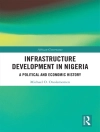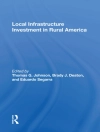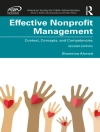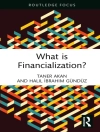Civil society, NGOs, governments, and multilateral institutions all repeatedly call for improved or ‘good’ governance – yet they seem to speak past one another. Governance is in danger of losing all meaning precisely because it means many things to different people in varied locations. This is especially true in sub-Saharan Africa. Here, the postcolony takes many forms, reflecting the imperial project with painful accuracy. Offering a set of multidisciplinary analyses of governance in different sectors (crisis management, water, food security, universities), in different locales across sub-Saharan Africa, and from different theoretical approaches (network to adversarial network governance); this volume makes a useful addition to the growing debates on ‘how to govern’. It steers away from offering a ‘correct’ definition of governance, or from promoting a particular position on postcoloniality. It gives no neat conclusion, but invites readers to draw their own conclusions based on these differing approaches to and analyses of governance in the postcolony. As a robust, critical assessment of power and accountability in the sub-Saharan context, this collection brings together topical case studies that will be a valuable resource for those working in the field of African international relations, public policy, public management and administration.
Cuprins
Figures and tables Abbreviations and acronyms Introduction: Governance in the Postcolony: Time for a rethink? – David Everatt Part I: Governance in sub-Saharan Africa in theory and practice Chapter 1 Governance in Africa: Notes towards a resurrection – David Everatt Chapter 2 African Shared Values in Governance for Integration: Progress and prospects – Salim Latib Chapter 3 Governance and Human Development in sub-Saharan Africa – Pundy Pillay Chapter 4 South African Foreign Policy and Global Governance: Conflict from above and below – Patrick Bond Chapter 5 Governing Urban Food Systems: Lessons from Lusaka, Zambia – Caryn Abrahams Chapter 6 African Crisis Leadership: Case study from West Africa – Anthoni van Nieuwkerk and Bongiwe Ngcobo Mphahlele Chapter 7 Public Policymaking through Adversarial Network Governance in South Africa – Susan Booysen Part II: Sectors and locations Chapter 8 Governance versus Government: As reflected in water management – Mike Muller Chapter 9 Broken Corporate Governance: South Africa’s municipal state-owned entities and agencies – William Gumede Chapter 10 Law and Governance: Has the South African judiciary overstepped its oversight mandate? – Chelete Monyane Chapter 11 Factoring in the ‘Real World’: Governance of public higher education in South Africa – Kirti Menon and Jody Cedras Chapter 12 Decolonisation of South African University Spaces: Case study of the Green Leadership Schools – Darlene Miller, Nomalanga Mkhize, Rebecca Pointer and Babalwa Magoqwana Chapter 13 Low-hanging Fruit or Deep-seated Transformation? Quality of life and governance in Gauteng, South Africa – David Everatt Contributors Index
Despre autor
Babalwa Magoqwana is a senior lecturer in the Sociology, Anthropology and History Department at Nelson Mandela University.












